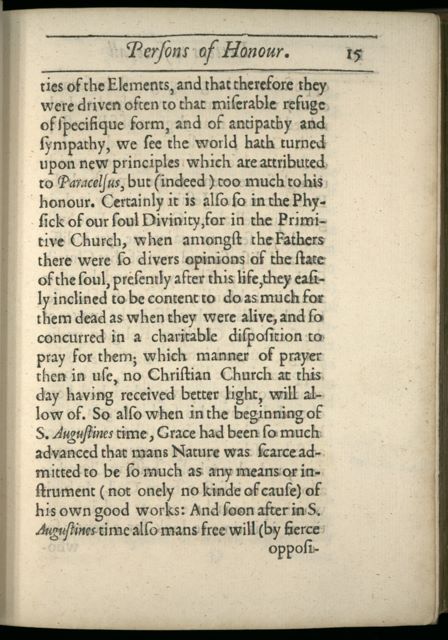ties of the Elements, and that therefore they
were driven often to that miserable refuge
of specifique form, and of antipathy and
sympathy; we see the world hath turned
upon new principles which are attributed
to Paracelsus, but (indeed) too much to his
honour. Certainly it is also so in the Phy-
sick of our soul Divinity, for in the Primi-
tive Church, when amongst the Fathers
there were so divers opinions of the state
of the soul, presently after this life, they easi-
ly inclined to be content to do as much for
them dead as when they were alive, and so
concurred in a charitable disposition to
pray for them; which manner of prayer
then in use, no Christian Church at this
day having received better light, will al-
low of. So also when in the beginning of
S. Augustines time, Grace had been so much
advanced that mans Nature was scarce ad-
mitted to be so much as any means or in-
strument (not onely no kinde of cause) of
his own good works: And soon after in S.
Augustines time also mans free will (by fierce
[CW: opposi-]
|

|